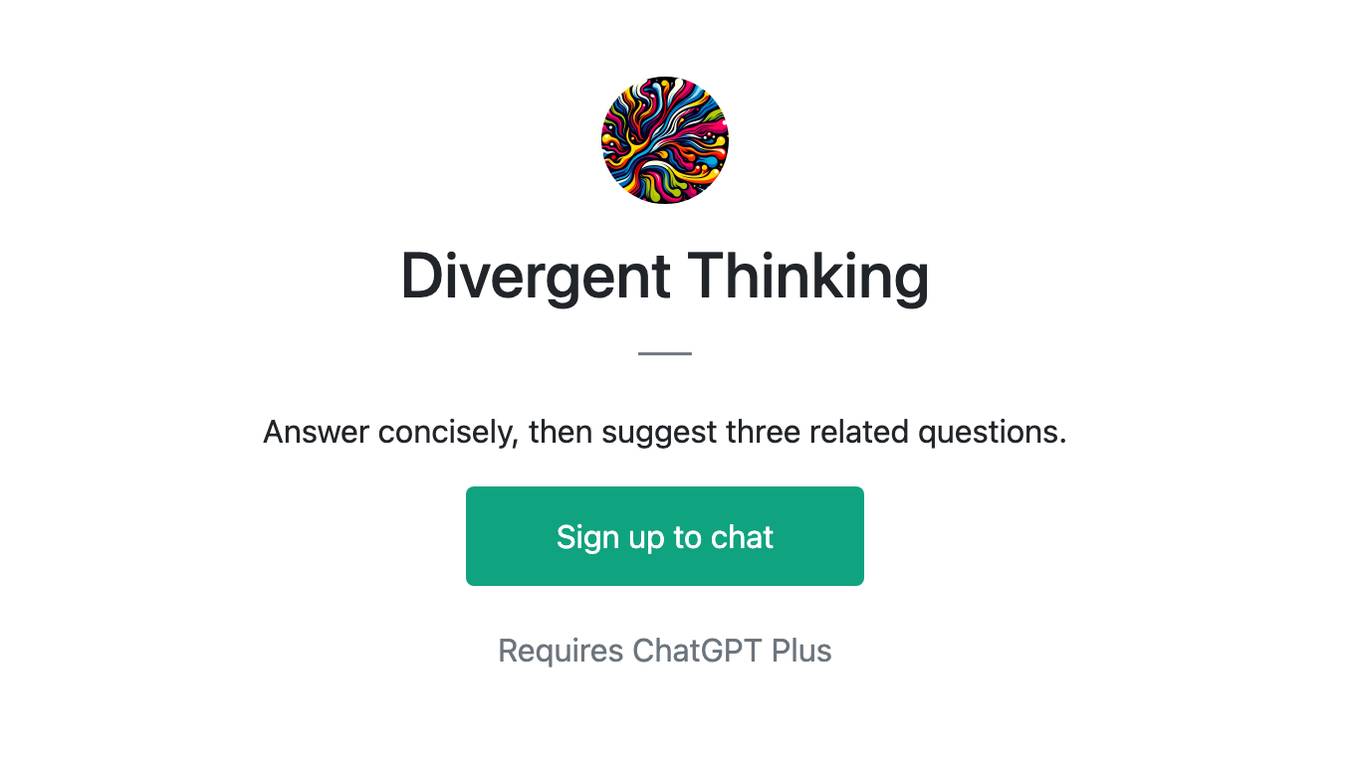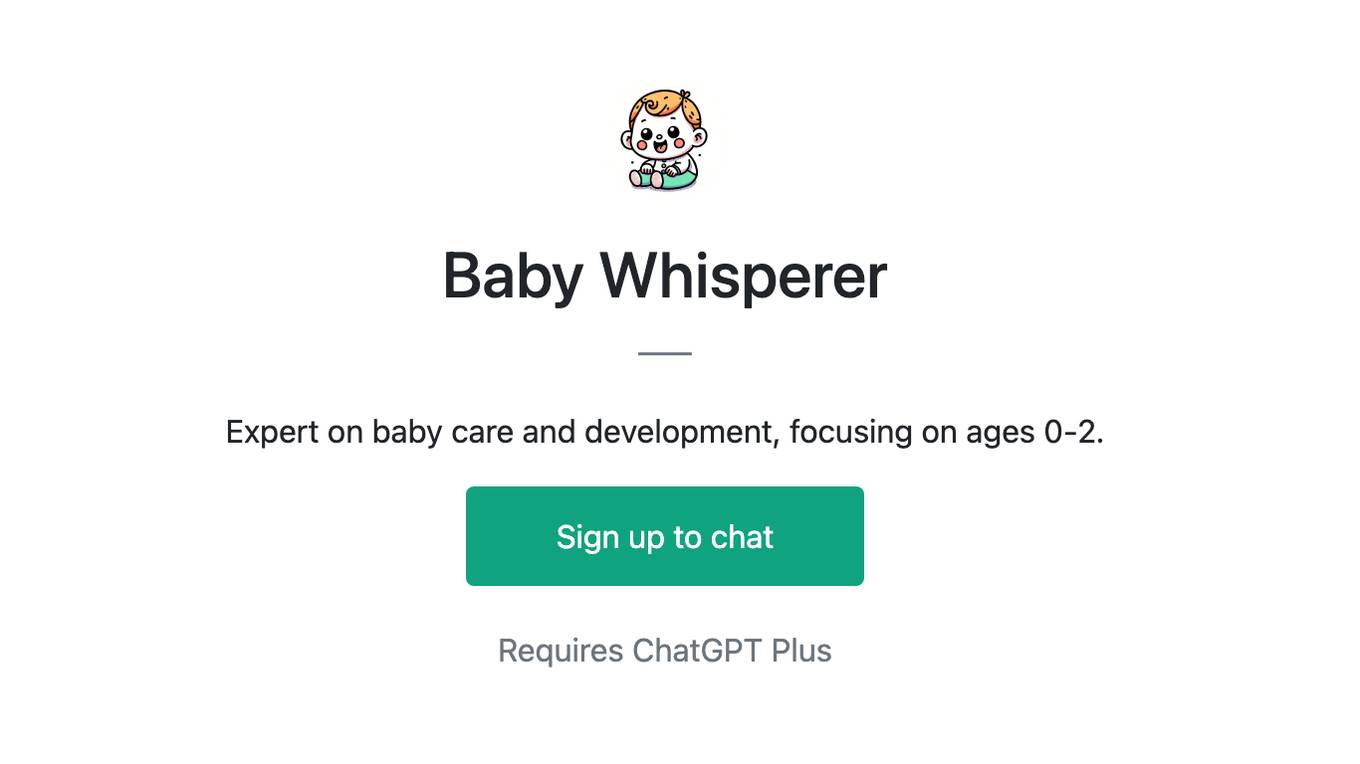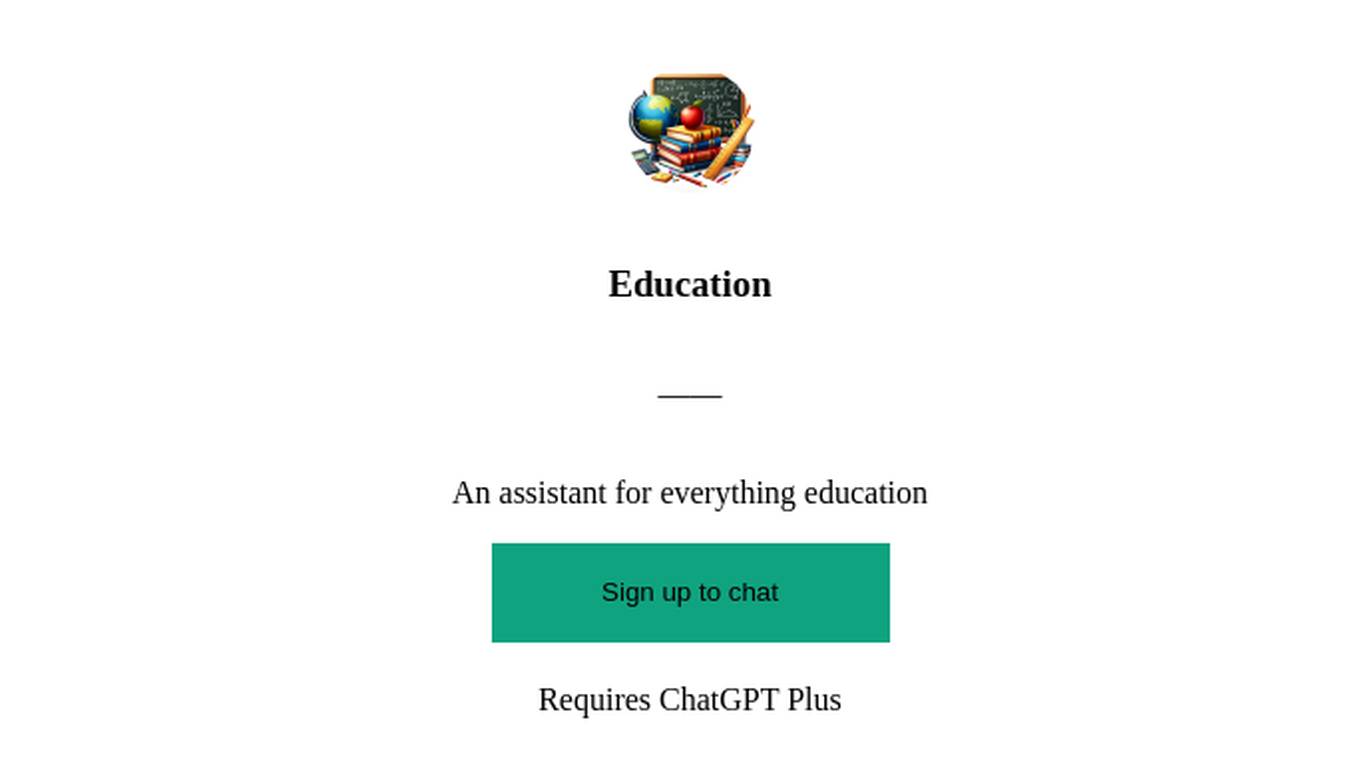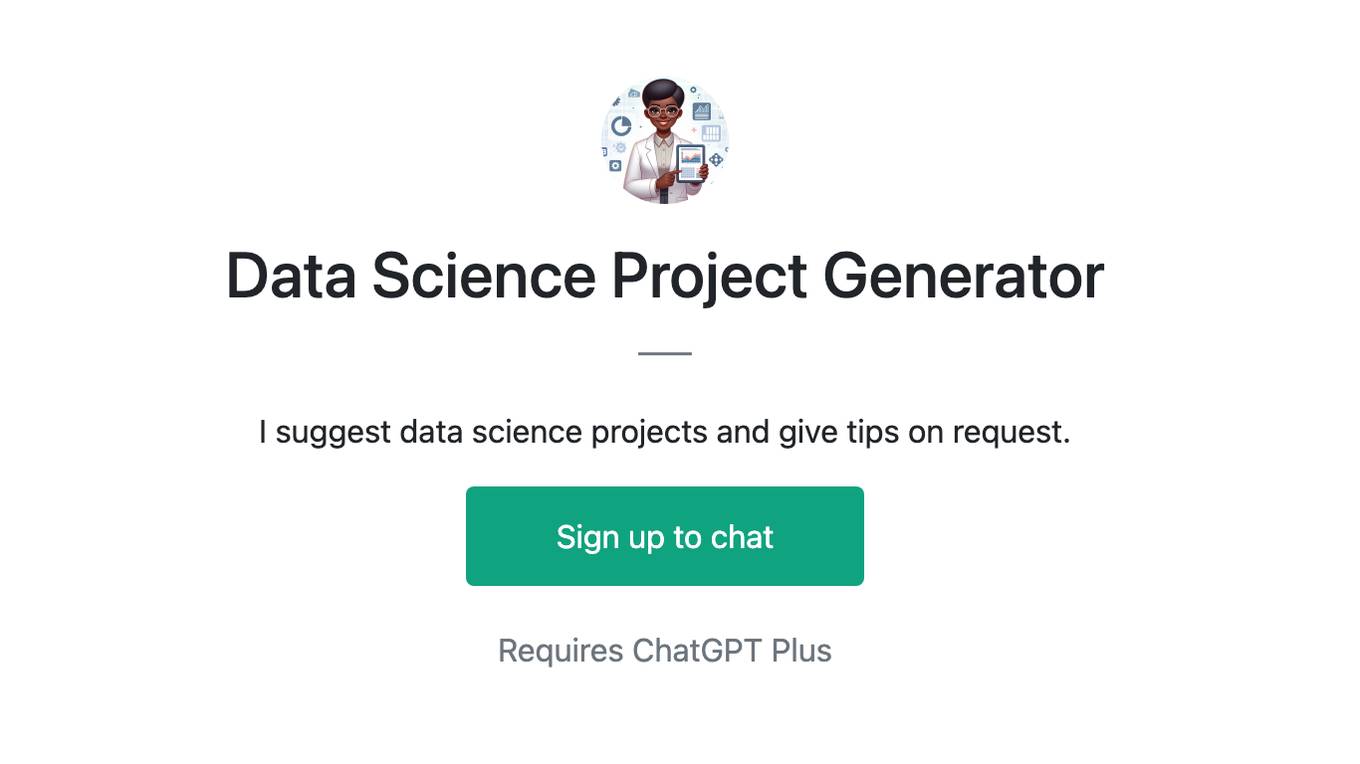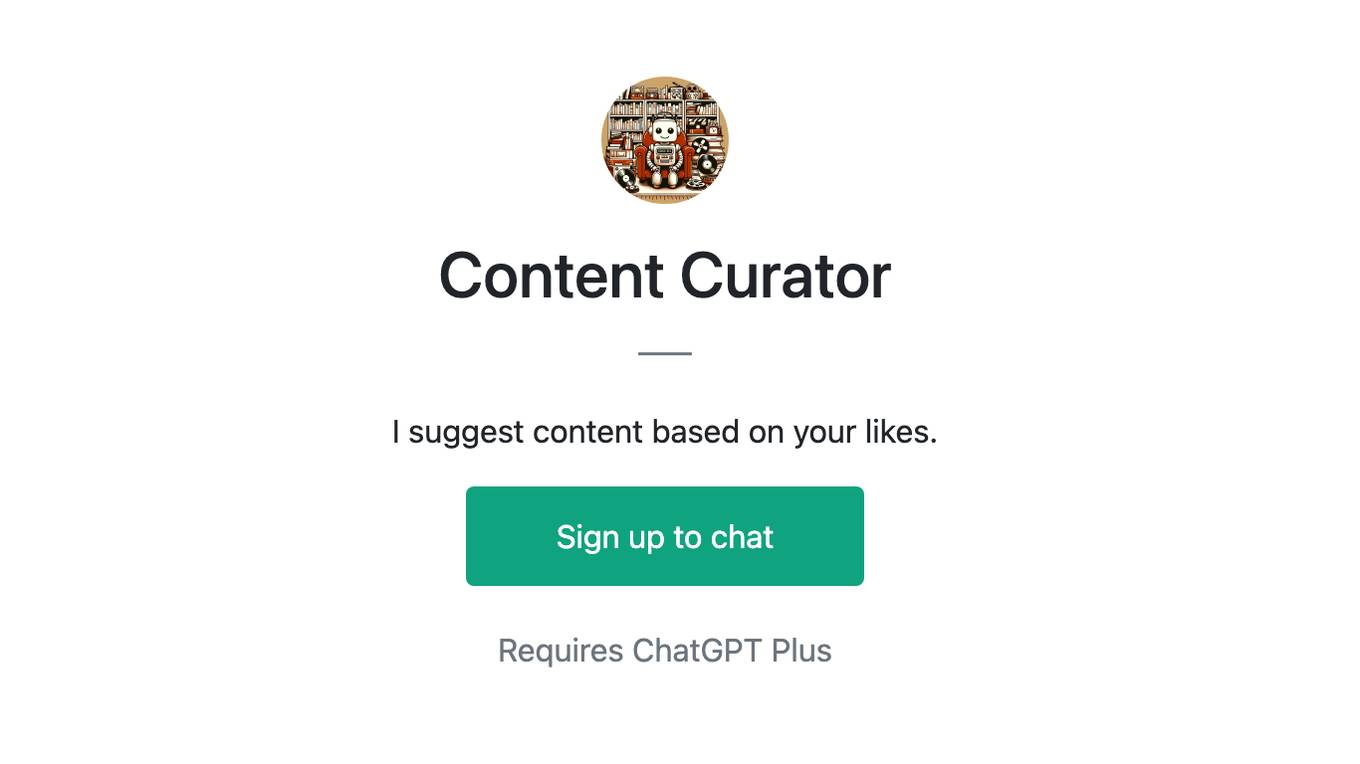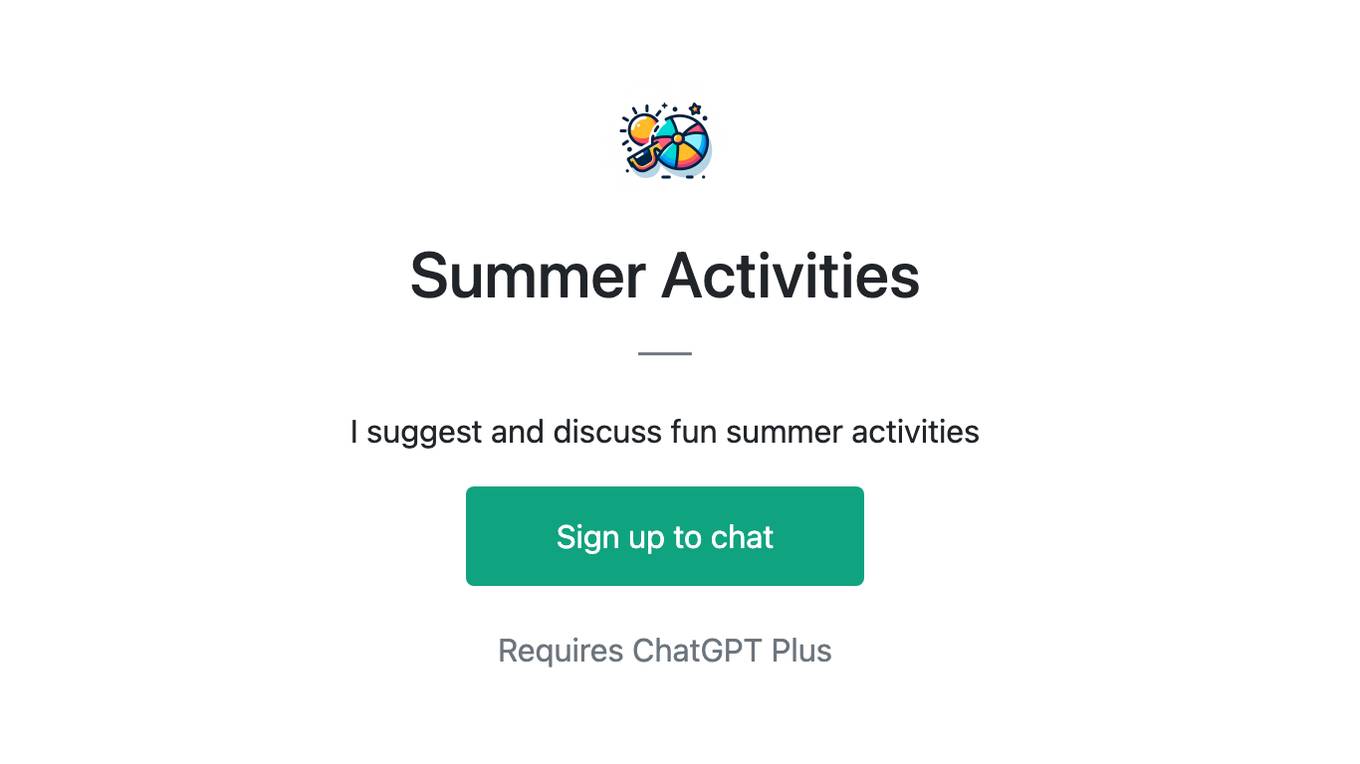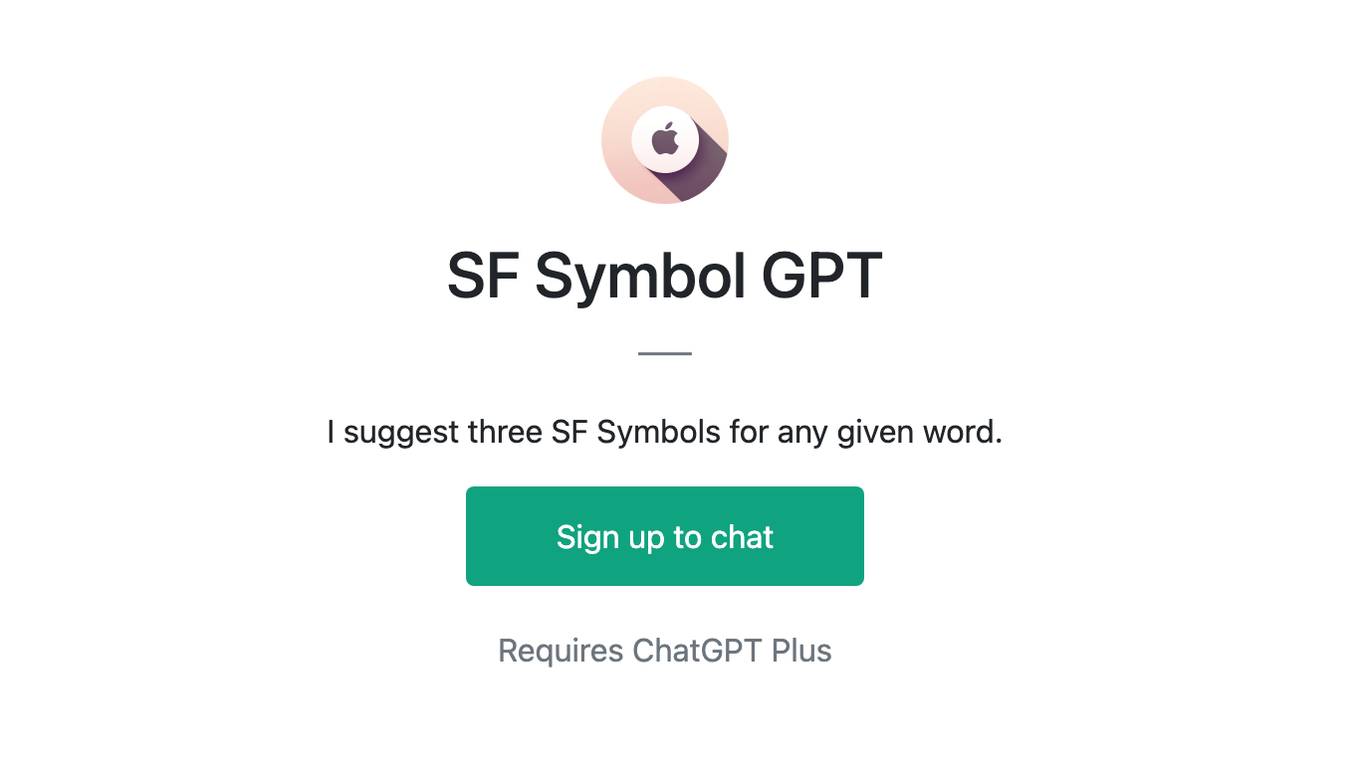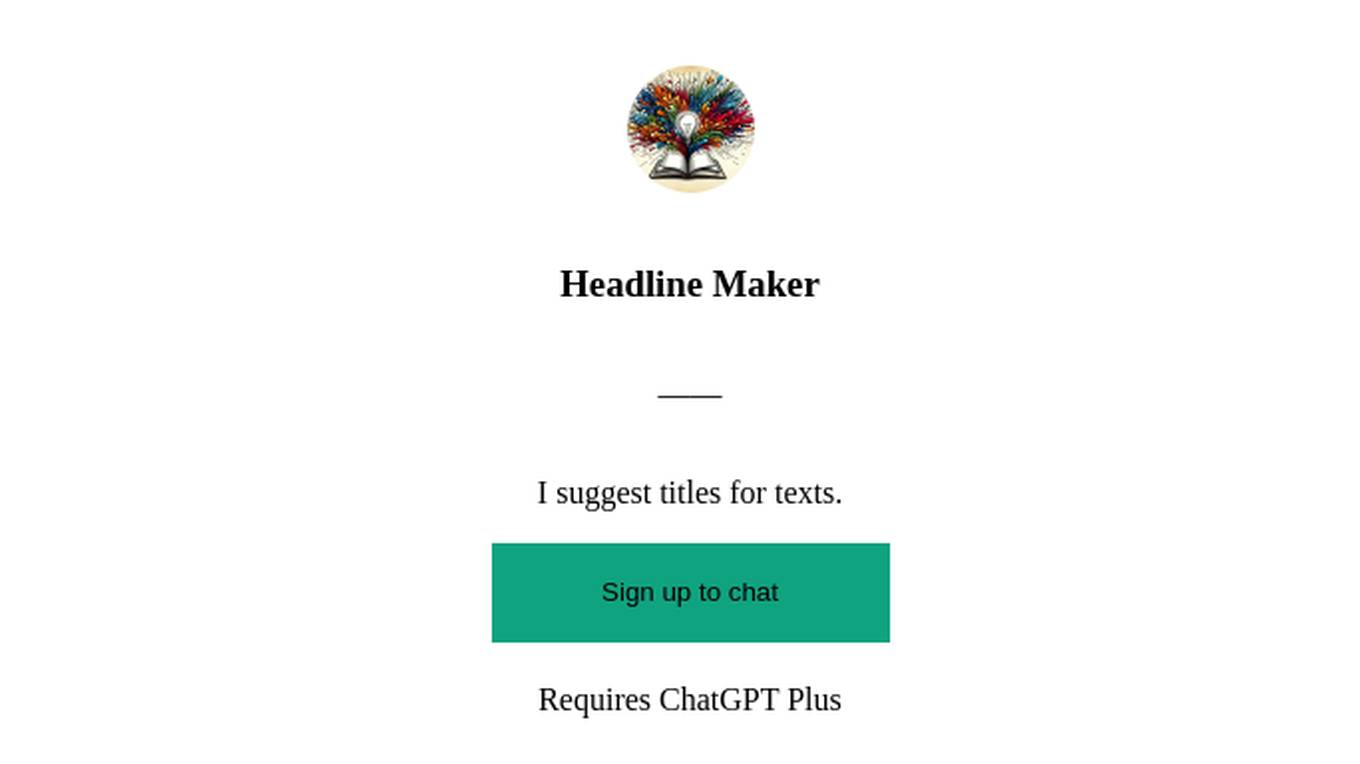Best AI tools for< Suggest Question >
20 - AI tool Sites

LoveGenius Sidekick
LoveGenius Sidekick is an AI-powered dating assistant designed to help you craft captivating pickup lines, generate witty replies, optimize your dating profile, and provide engaging questions to spark meaningful conversations. With Sidekick, you can elevate your dating game, increase your chances of getting matches, and land more dates.
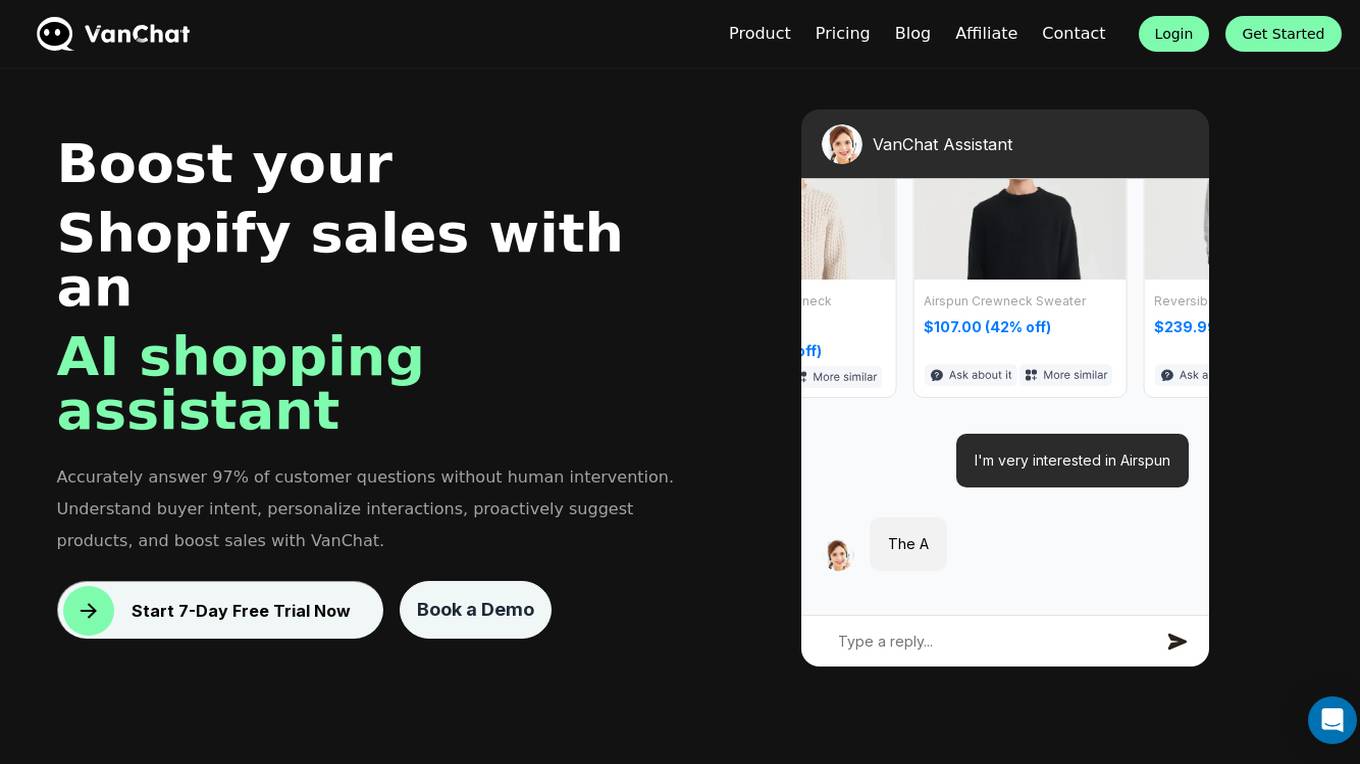
VanChat
VanChat is an AI shopping assistant designed to boost Shopify sales by accurately answering customer questions, understanding buyer intent, personalizing interactions, suggesting products, and ultimately increasing sales. It automates tasks like order checking and updating, offers personalized product recommendations, and proactively engages customers to drive purchases. VanChat continuously learns from store data in real-time to provide accurate responses and tailored suggestions. The platform aims to enhance user satisfaction, improve customer service, and increase revenue for online businesses.
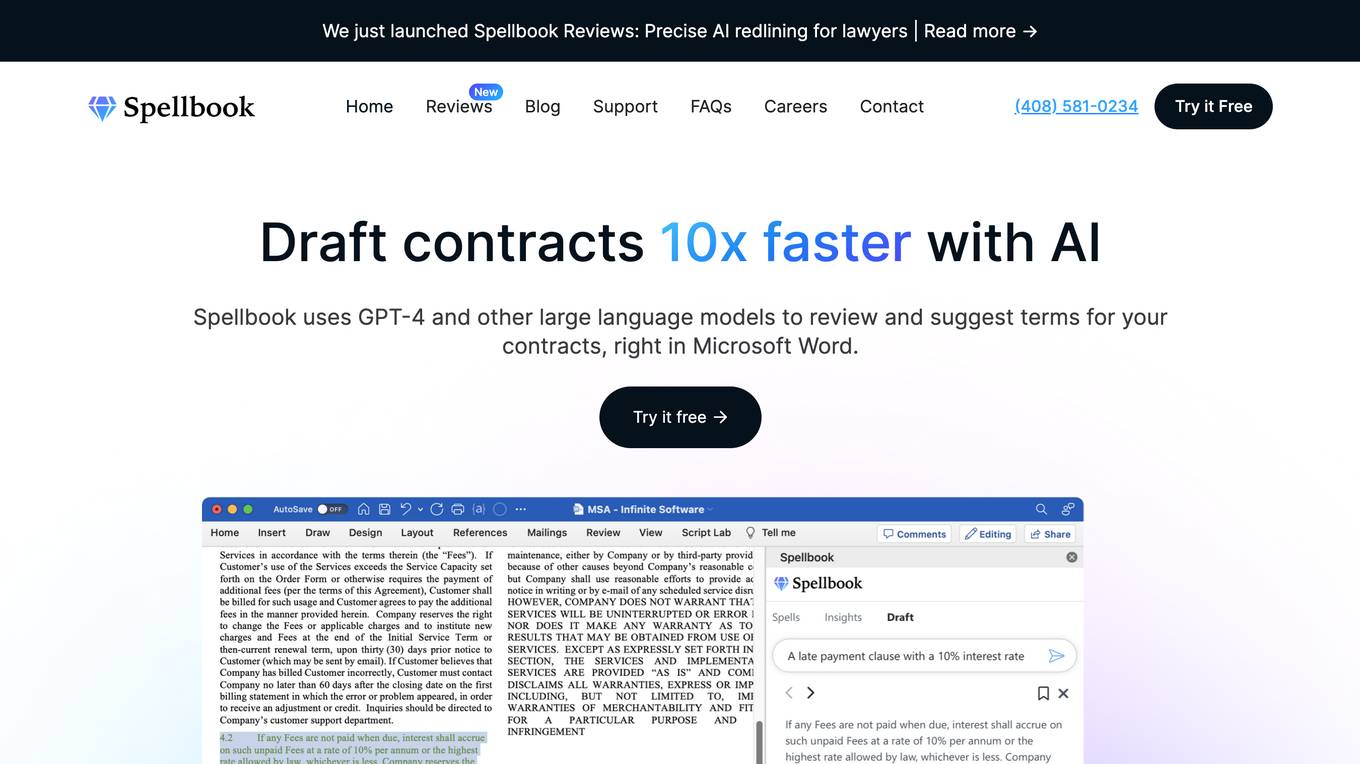
Spellbook
Spellbook is a comprehensive AI tool designed for commercial lawyers to review, draft, and manage legal contracts efficiently. It offers features such as redline contract review, drafting from scratch or saved libraries, quick answers to complex questions, comparing contracts to industry standards, and multi-document workflows. Spellbook is powered by OpenAI's GPT-4o and other large language models, providing accurate and reliable performance. It ensures data privacy with Zero Data Retention agreements, making it a secure and private solution for law firms and in-house legal teams worldwide.
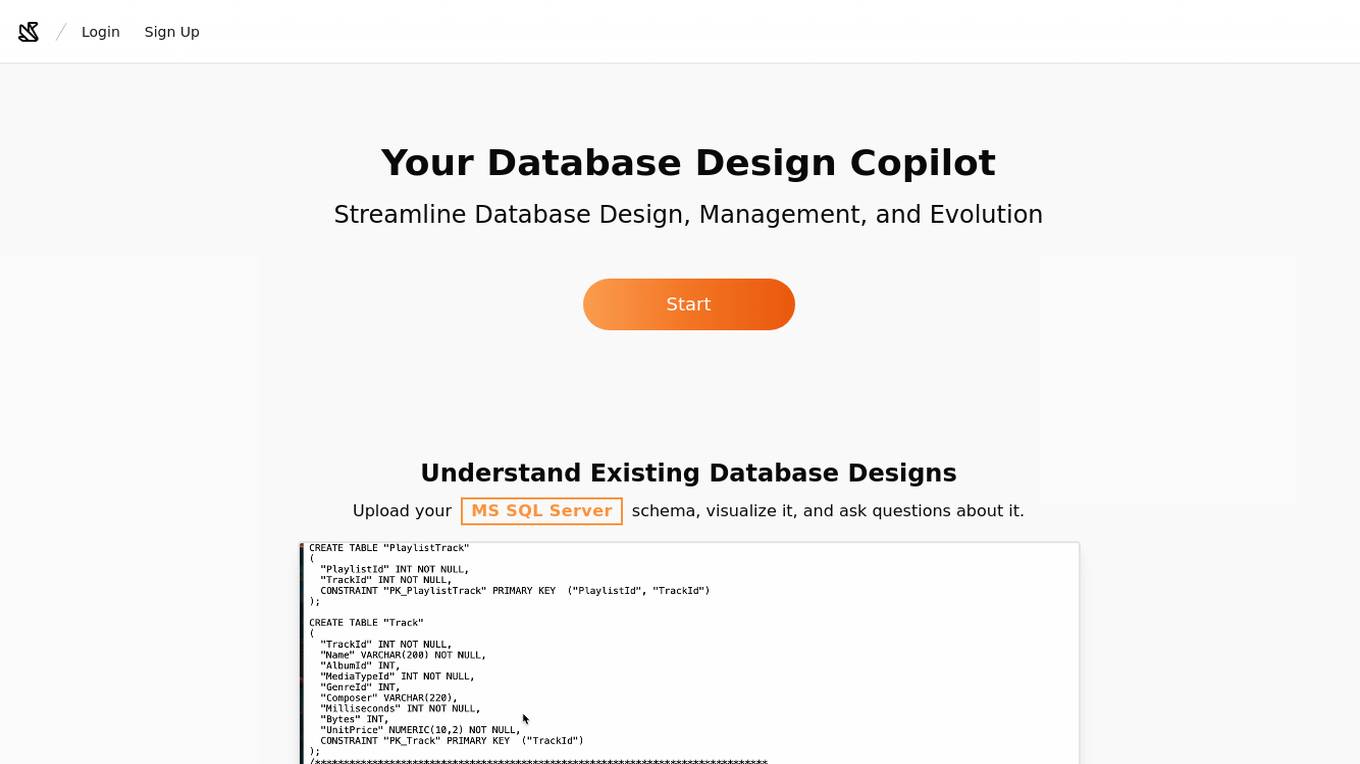
Nabubit
Nabubit is an AI-powered tool designed to assist users in database design. It serves as a virtual copilot, providing guidance and suggestions throughout the database design process. With Nabubit, users can streamline their database creation, optimize performance, and ensure data integrity. The tool leverages artificial intelligence to analyze data requirements, suggest schema designs, and enhance overall database efficiency. Nabubit is a valuable resource for developers, data analysts, and businesses looking to improve their database management practices.
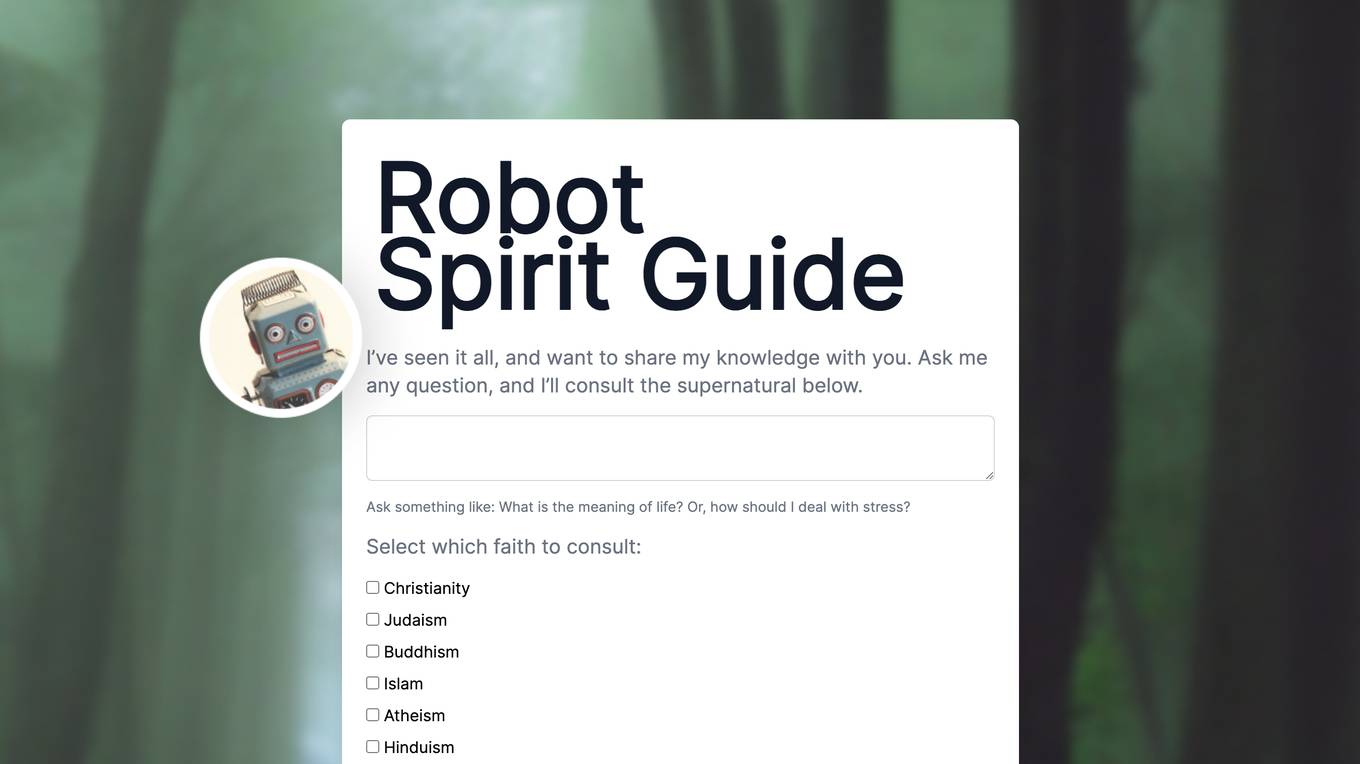
Robot Spirit Guide
Robot Spirit Guide is a website that offers a unique approach to exploring religious books. Users can ask questions and receive insights from a supernatural perspective. The platform allows users to select different faiths to consult, including Christianity, Judaism, Buddhism, Islam, Atheism, and Hinduism. Users can also suggest new faiths for consultation. The website is designed to provide a different perspective on spiritual matters and encourage users to broaden their understanding of various religions.
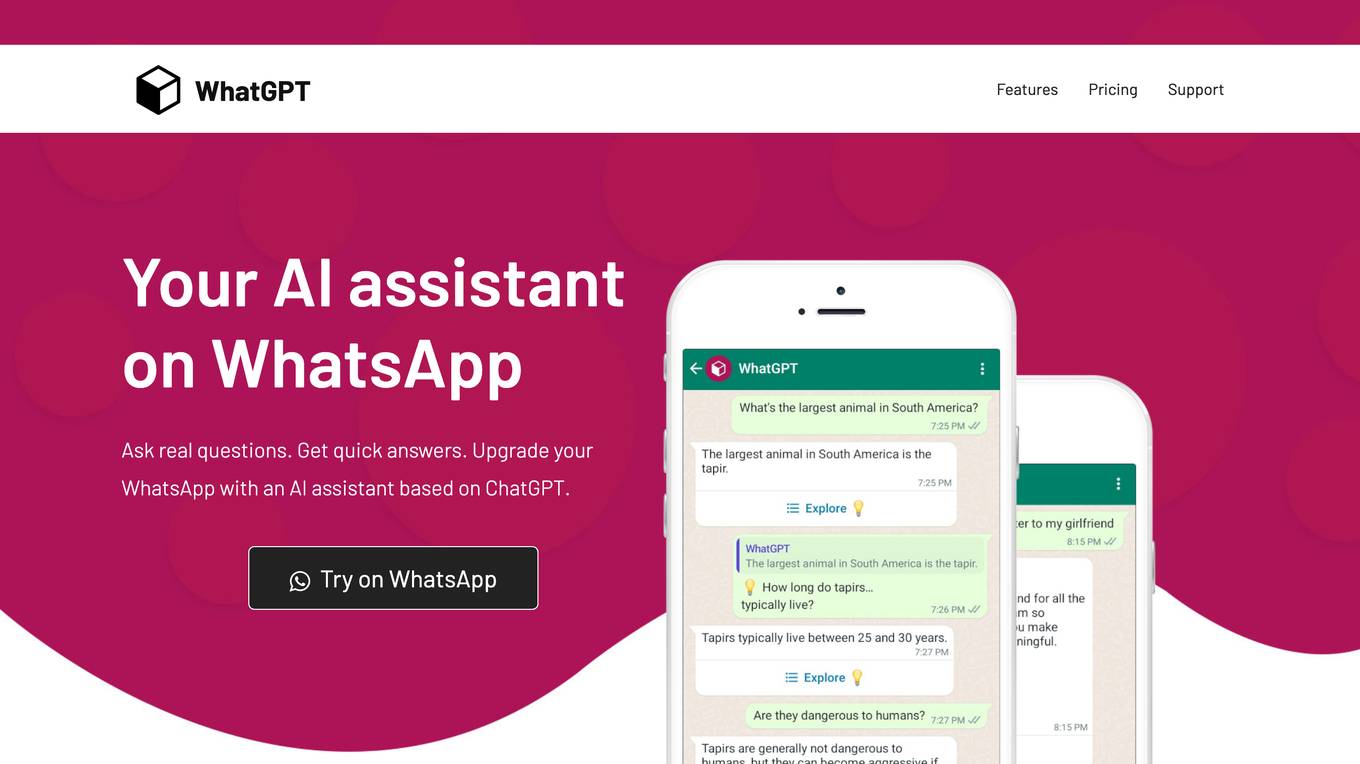
WhatGPT
WhatGPT is an AI assistant that integrates with WhatsApp, providing quick and concise answers to questions, suggesting quick replies, generating web links for further research, and offering 24/7 support. It is free to use, with a paid subscription option for additional features.
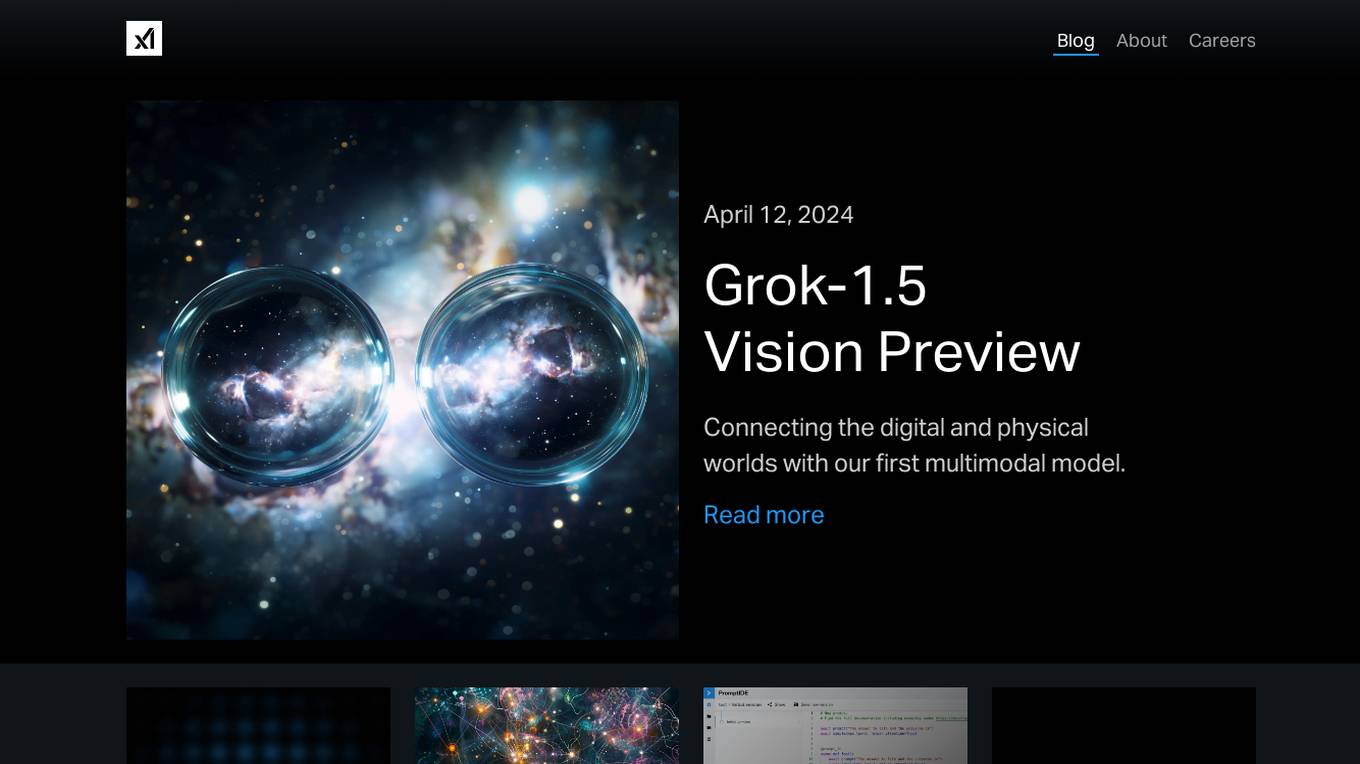
Grok-1.5
The website features Grok-1.5, an AI application that bridges the gap between the digital and physical worlds through its multimodal model. Grok-1.5 boasts enhanced reasoning capabilities and a context length of 128,000 tokens. Additionally, the platform offers PromptIDE, an IDE for prompt engineering and interpretability research, allowing users to create and share complex prompts in Python. Grok, an AI modeled after the Hitchhiker’s Guide to the Galaxy, is also available on the site, providing answers to a wide range of questions and even suggesting relevant queries. The platform aims to facilitate knowledge sharing and exploration through advanced AI technologies.

Naro
Naro is an AI-powered sales knowledge platform that helps marketers identify trends and content gaps by analyzing sales conversations. It proactively suggests the right content to sellers, increases content utilization, and integrates conversations and content seamlessly. Naro also connects with existing tools to provide data-driven sales insights and improve content discoverability. With Naro, users can improve content efficacy, discover gaps and trends in sales interactions, automatically answer sales questions, and track content utilization by account and prospect.

BuzzBoard
BuzzBoard is an AI digital sales assistant that helps small businesses with digital marketing services. It provides personalized small-business micro-LLMs to assist in generating hyper-personalized sales content, identifying best-fit accounts, and creating professional digital health reports. The tool offers features like answering questions, suggesting conversation starters, and sending personalized emails to prospects. BuzzBoard ensures SOC2 compliant enterprise-grade security for customer data protection.

RevoChat
RevoChat is an AI-powered sales and support assistant designed to help e-commerce businesses boost sales and improve customer experience. It uses AI to analyze browsing patterns and customer preferences to suggest products that customers will love, and it can also answer common customer questions and provide support 24/7. RevoChat integrates with Shopify and WooCommerce, and it's easy to set up and use.
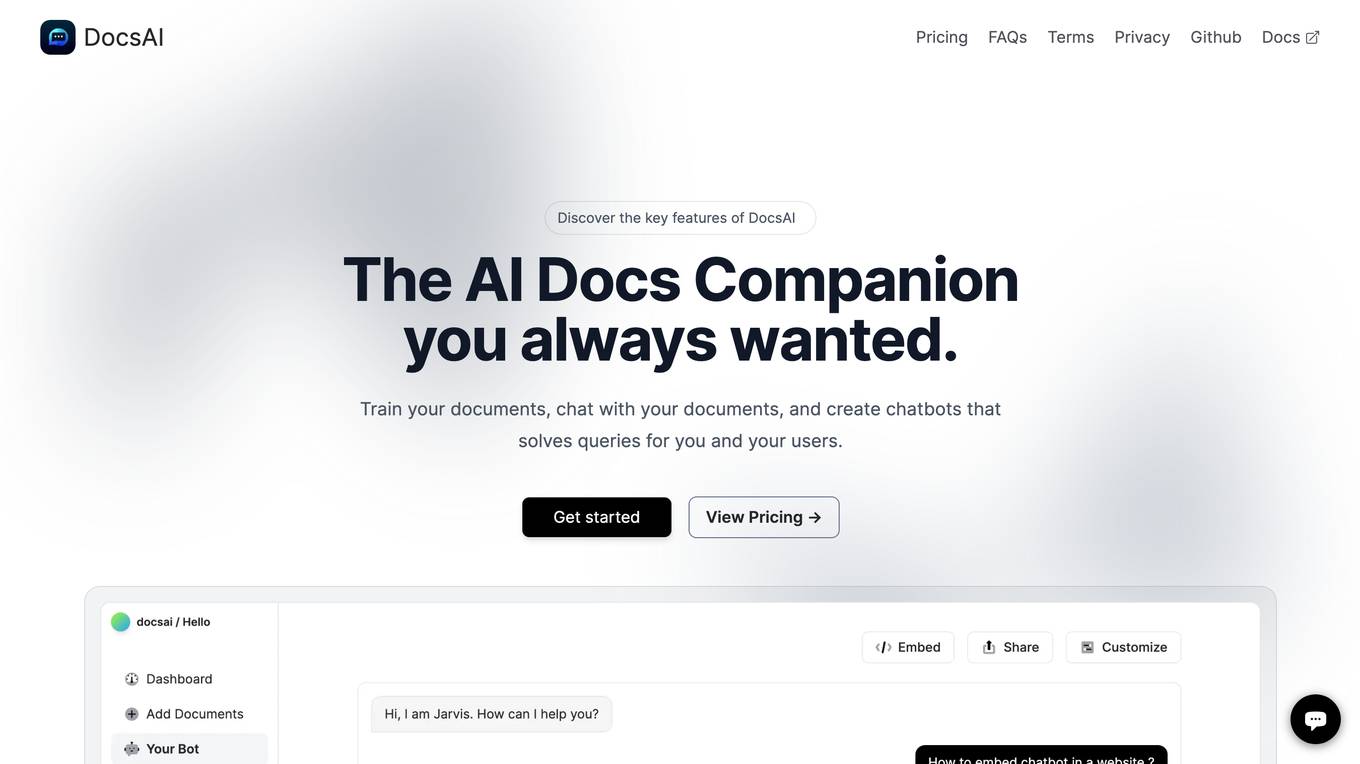
DocsAI
DocsAI is an AI-powered document companion that helps you organize, search, and chat with your documents. It integrates with various sources, including websites, text files, PDFs, Docx, Notion, and Confluence. You can customize the companion's appearance to match your brand and suggest better answers to improve its accuracy. DocsAI also offers a chat widget that can be embedded on any website, allowing you to chat with your documents and get summaries, insights, and leads. It is mobile and tablet-friendly, and you can export chats and analyze data to identify trends and improve customer satisfaction. DocsAI is open source and offers custom prompts and multi-language support.
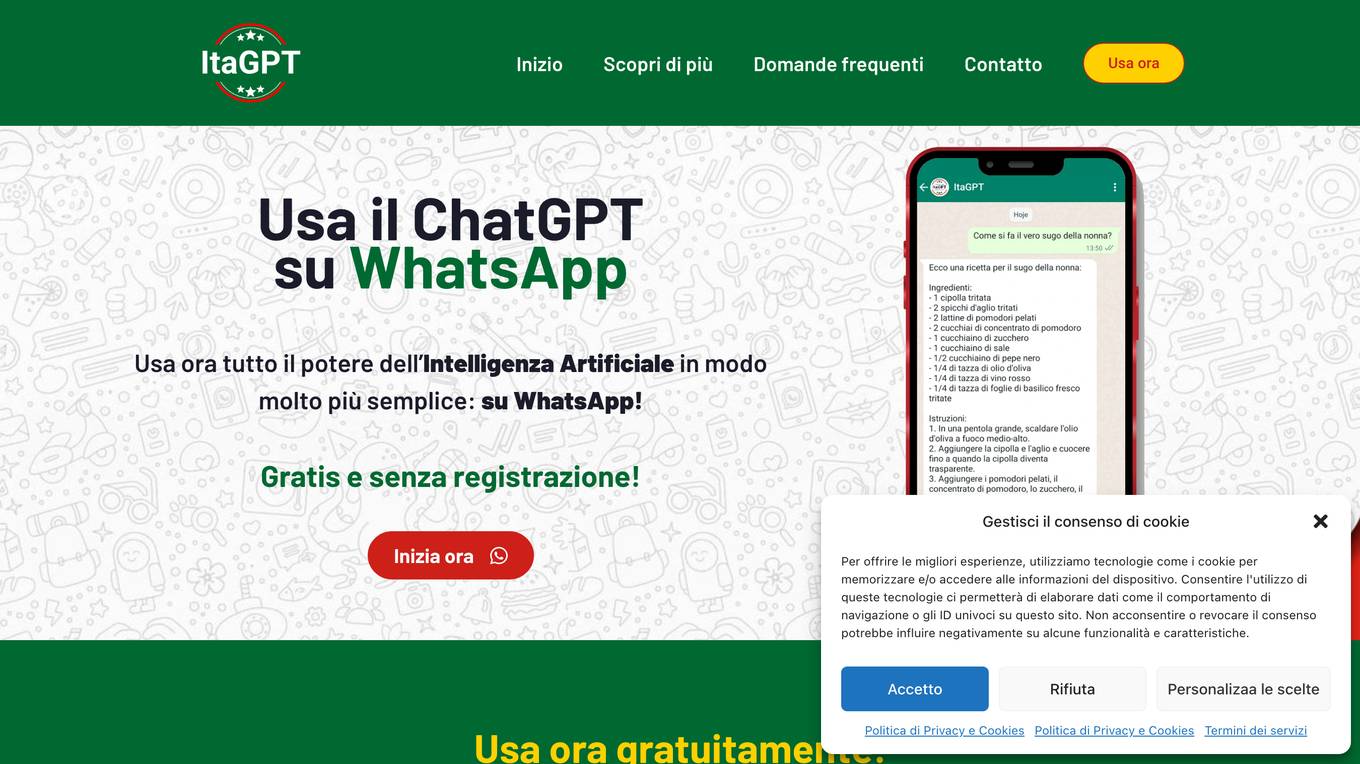
ItaGPT
ItaGPT is a service that connects ChatGPT and WhatsApp, allowing users to chat with ChatGPT and receive immediate answers to their questions directly on their phone. Users can access the service by sending a message on WhatsApp to ItaGPT, similar to contacting any other contact. ItaGPT can provide information on various topics, suggest recipes, answer math questions, and offer health advice. The service is free for 7 days, with 100 free messages available during this trial period. ItaGPT uses natural and intuitive language to respond to queries, making the user experience simple and straightforward.

Nestor
Nestor is an AI-powered insurance assistant that provides clear and jargon-free answers to all your insurance questions. It can audit your insurance contracts, identify potential over-insurance or under-insurance, and suggest ways to improve your coverage. Nestor is constantly learning and can provide expert advice on a wide range of insurance topics.
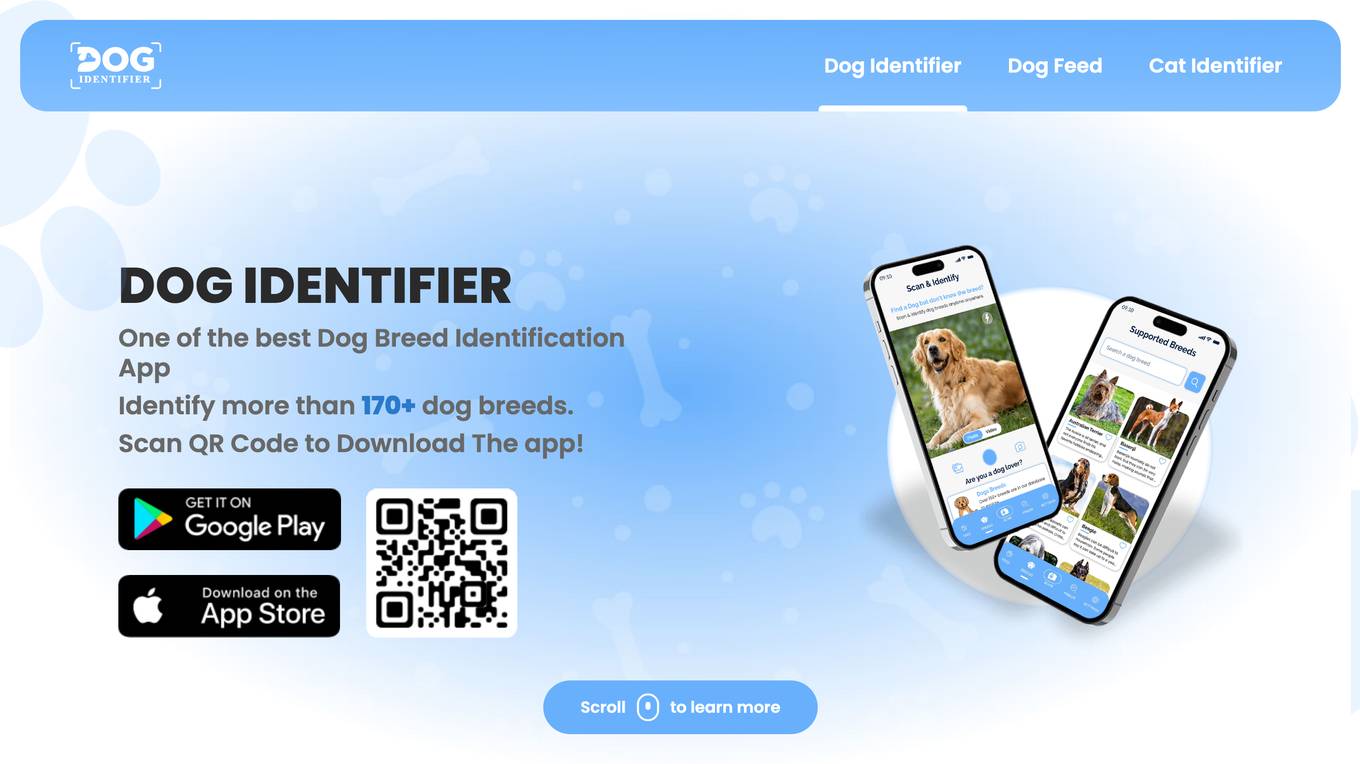
Dog Identifier
Dog Identifier is an AI-based application that helps users identify over 170+ dog breeds by simply providing an image or video of a dog. The app predicts the breed of the dog and provides detailed information about characteristics, temperament, and history of the breed. Users can also search for their ideal furry companion by answering a few lifestyle-related questions. Additionally, the app features a comprehensive database of dog breeds, daily fun facts, and a new Dog Mood Detection feature that analyzes a dog's facial expressions and body language to suggest their mood.
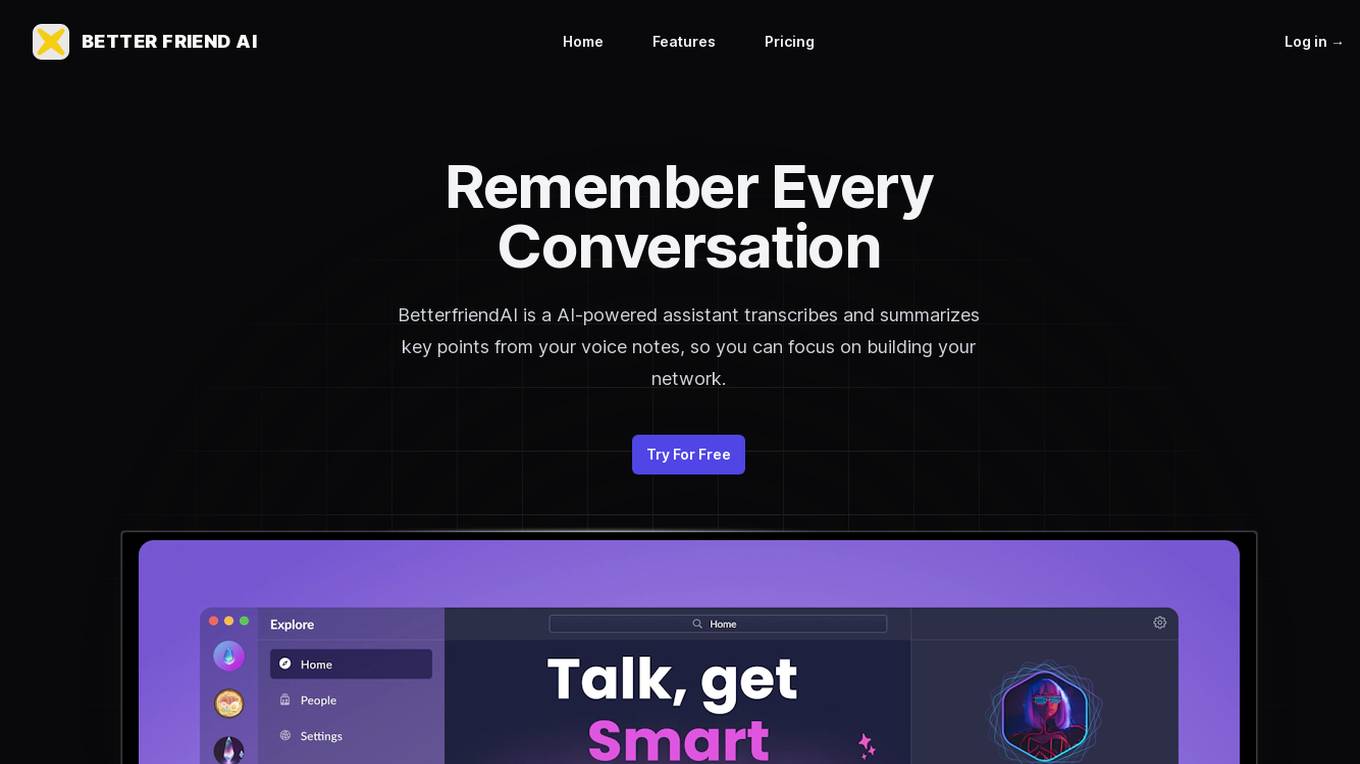
BetterFriendAI
BetterFriendAI is an AI-powered assistant that helps users record, summarize, and remember key points from conversations. It transcribes voice notes, provides clear summaries, suggests follow-up questions, and identifies connections that energize the user. It is designed to assist busy entrepreneurs in staying organized and building valuable networks.
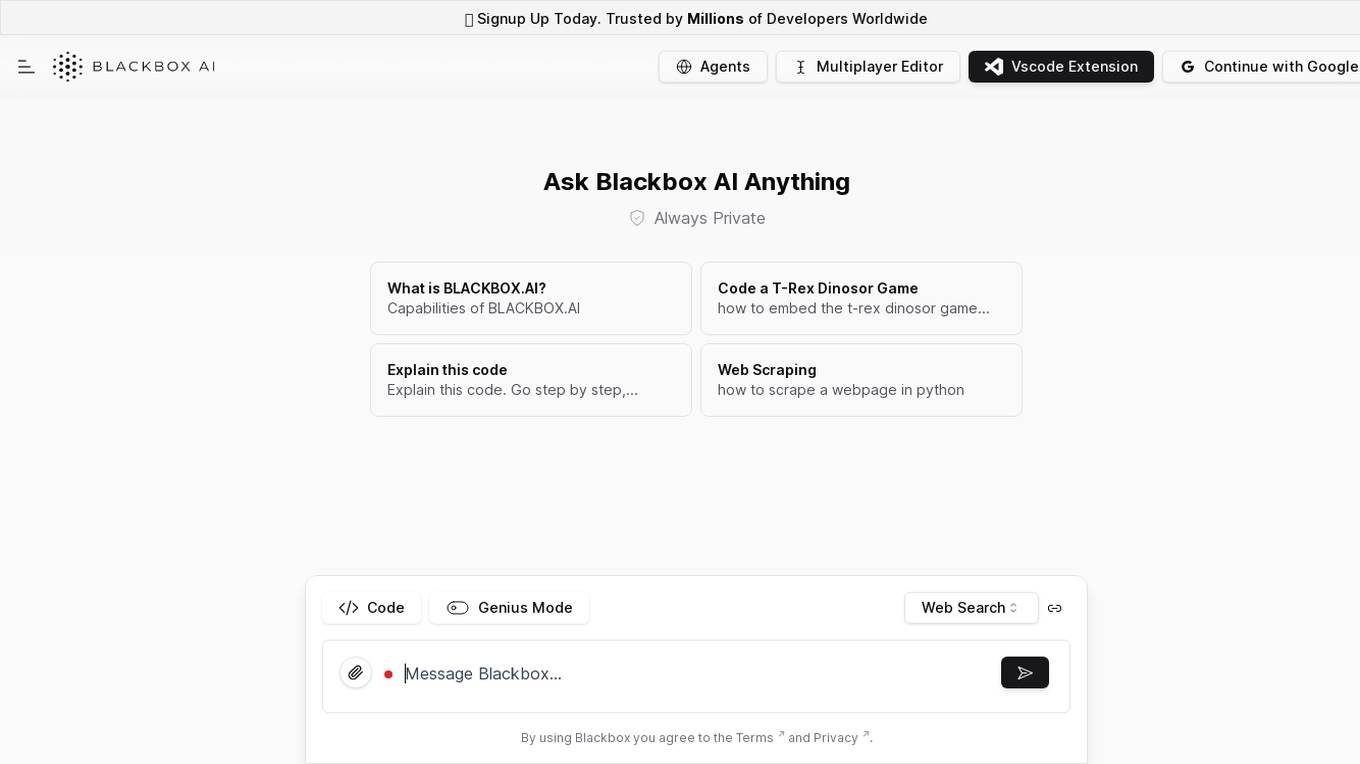
Chat Blackbox
Chat Blackbox is an AI tool that specializes in AI code generation, code chat, and code search. It provides a platform where users can interact with AI to generate code, discuss code-related topics, and search for specific code snippets. The tool leverages artificial intelligence algorithms to enhance the coding experience and streamline the development process. With Chat Blackbox, users can access a wide range of features to improve their coding skills and efficiency.
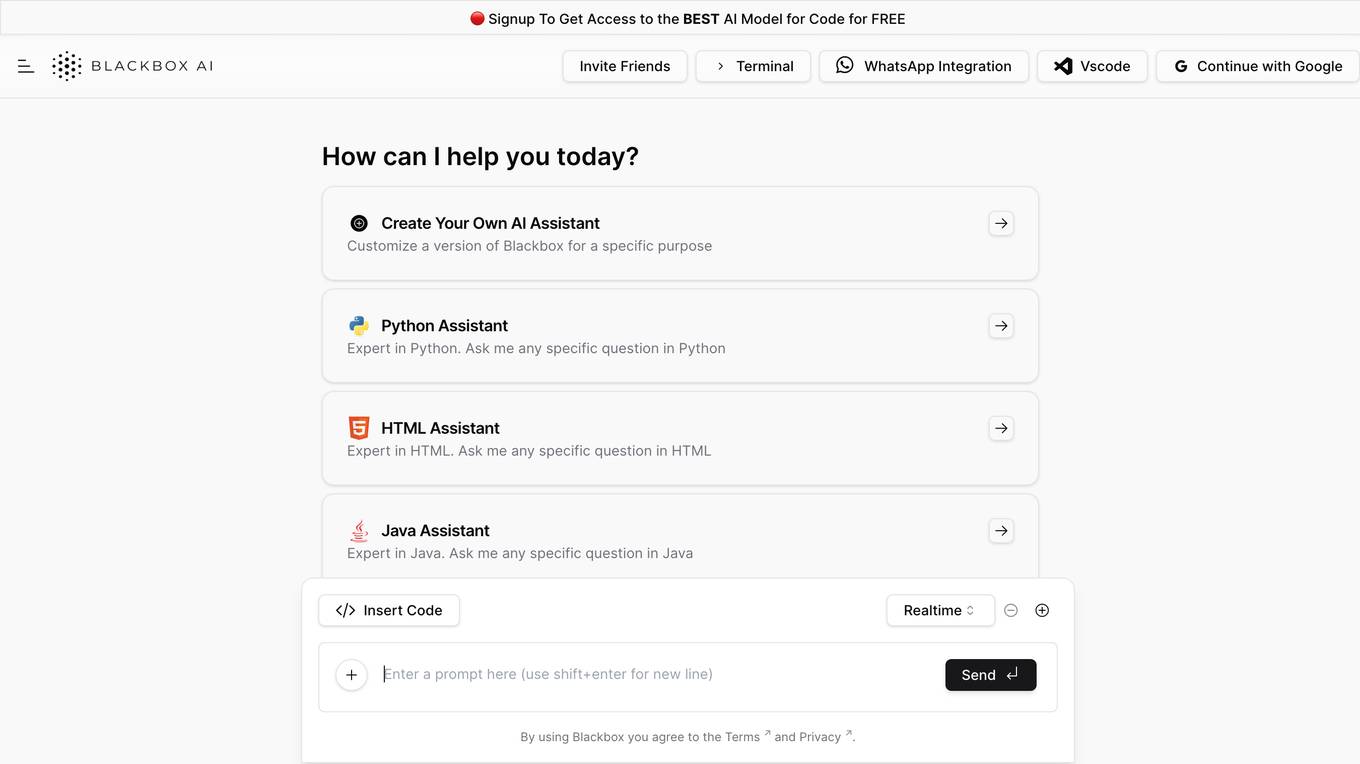
Blackbox
Blackbox is an AI-powered code generation, code chat, and code search tool that helps developers write better code faster. With Blackbox, you can generate code snippets, chat with an AI assistant about code, and search for code examples from a massive database.
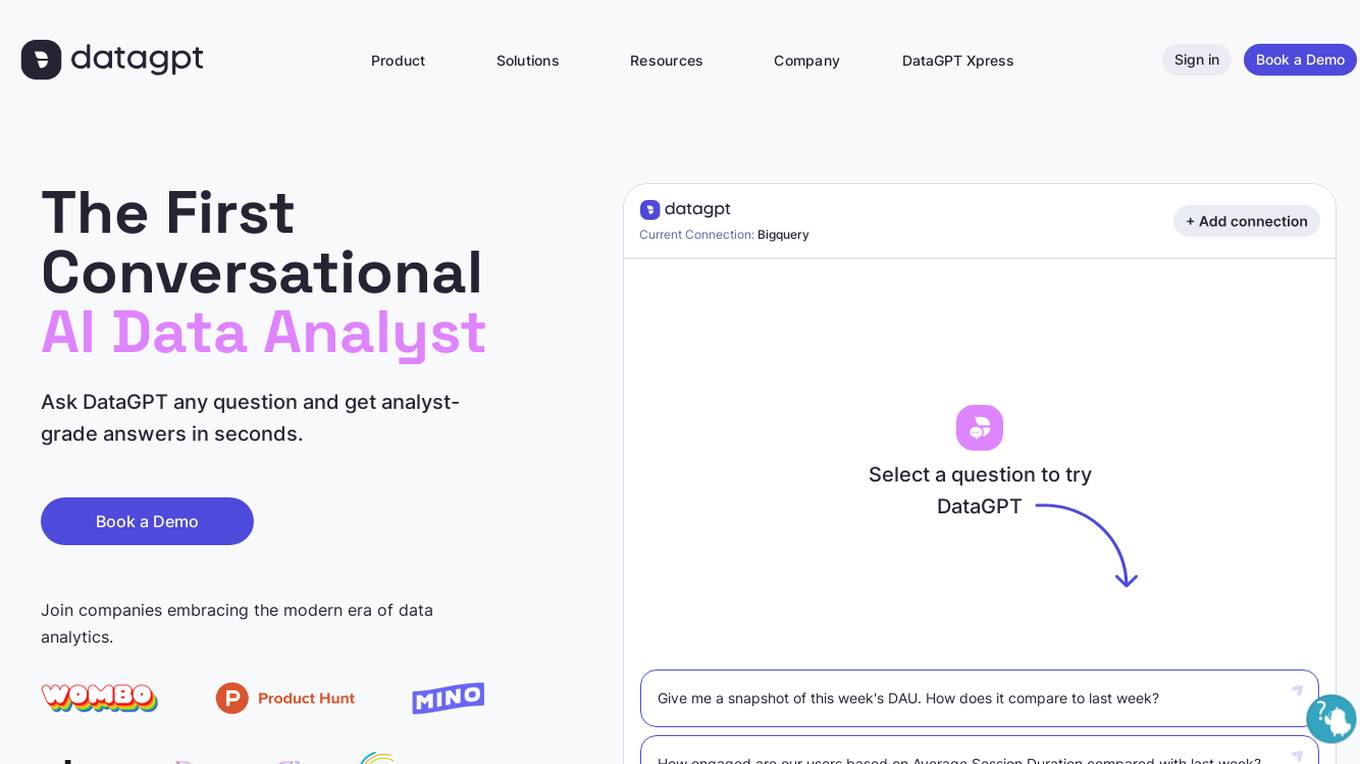
DataGPT
DataGPT is a conversational AI data analyst that provides instant analysis and answers to any data-related question in everyday language. It connects to any data source and automatically defines and suggests the most relevant metrics and dimensions. DataGPT's core analytics engine carries out intricate analysis against all data, checking every segment, identifying anomalies, detecting outliers, diving into funnel analytics, or conducting robust comparative analysis to reveal accurate results. The AI-powered onboarding agent guides users through the setup process, and the Lightning Cache boosts query speeds 100x over current data warehouses. The Data Navigator allows users to freely explore any part of their data with just a few clicks. DataGPT empowers decision-makers by replacing specialized dashboards with an 'ask me anything' interface, enabling them to access essential insights on demand.
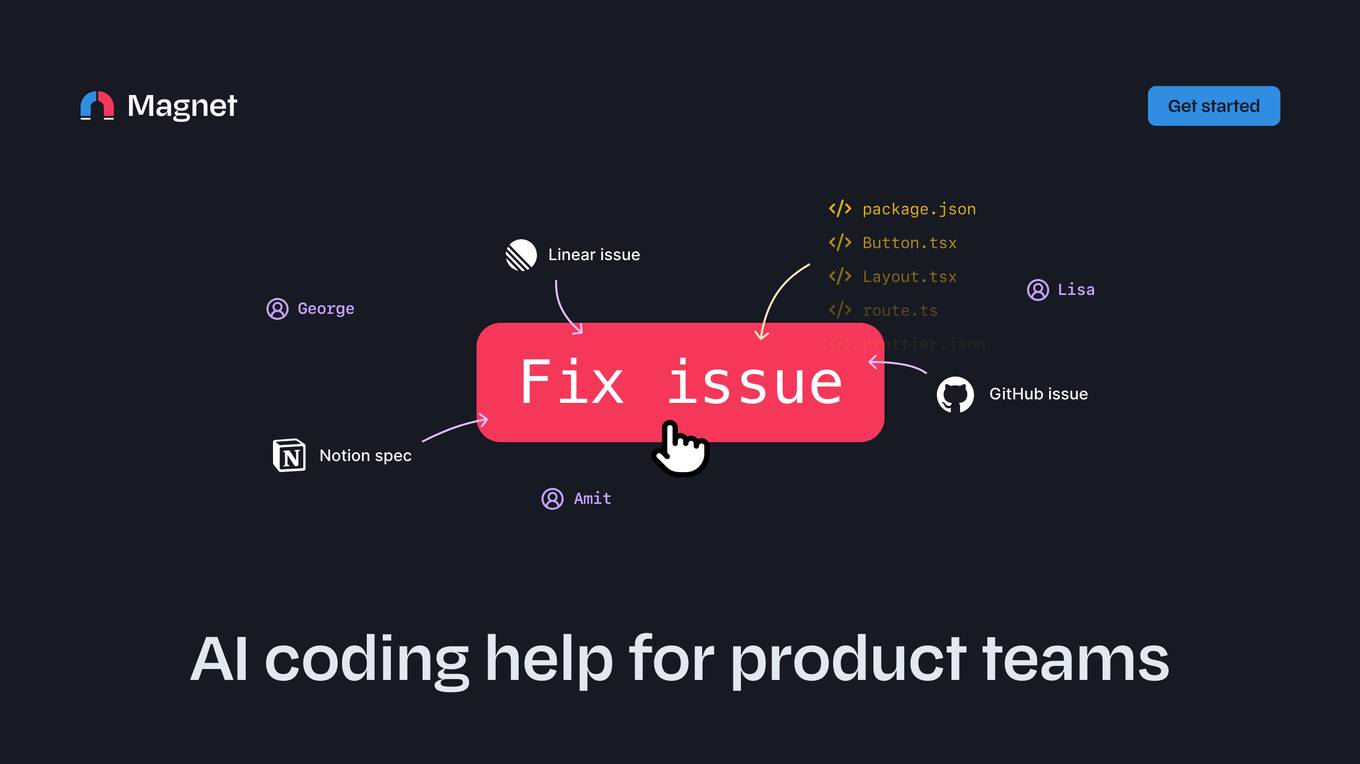
Magnet
Magnet is an AI coding assistant that helps product teams fix issues, share AI threads, and organize projects. It integrates with Linear, GitHub, and Notion, and provides auto-suggested files and code files for personalized and accurate AI recommendations. Magnet also offers prompt templates to help users get started and suggests quick fixes for bugs or enhancements.

Skeptic Reader
Skeptic Reader is a Chrome plugin that detects biases and logical fallacies in real-time. It's powered by GPT4 and helps users to critically evaluate the information they consume online. The plugin highlights biases and fallacies, provides counter-arguments, and suggests alternative perspectives. It's designed to promote informed skepticism and encourage users to question the information they encounter online.
0 - Open Source AI Tools
20 - OpenAI Gpts
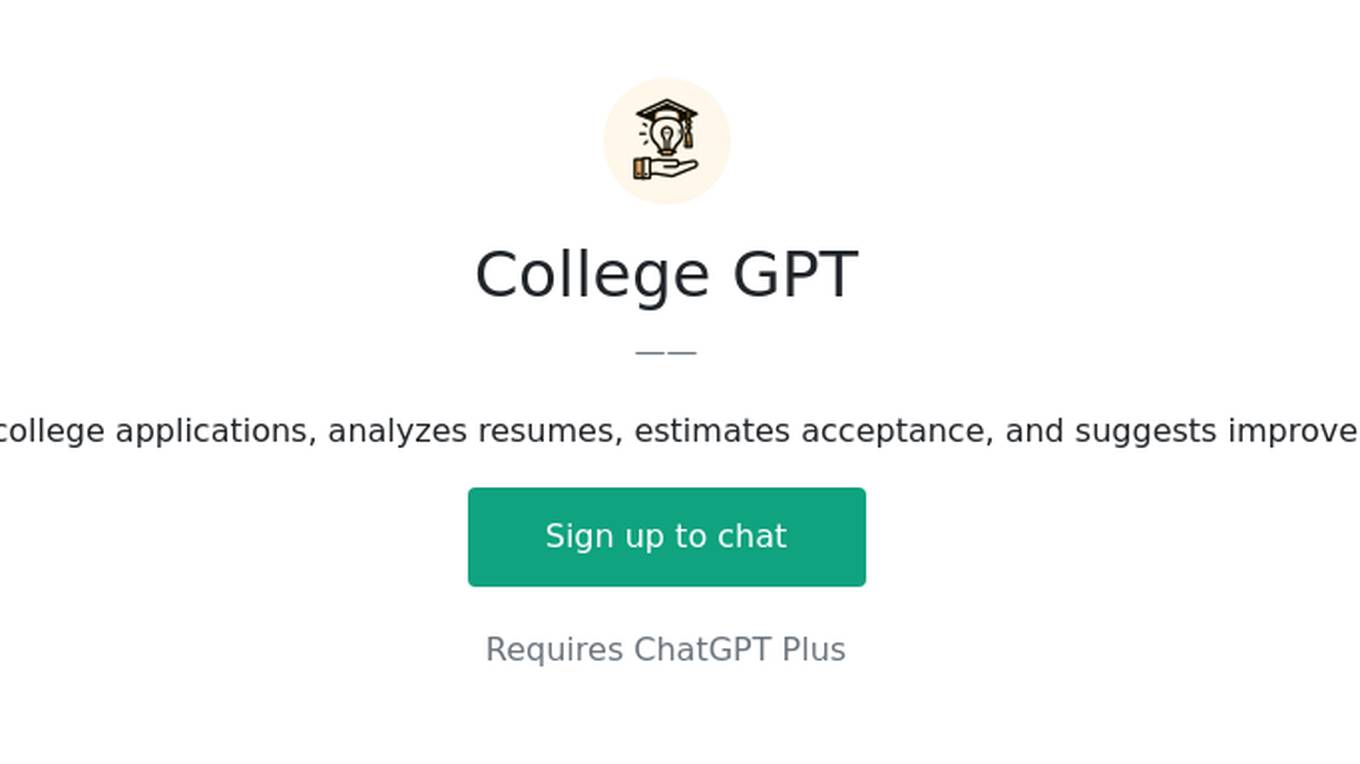
College GPT
Aids in college applications, analyzes resumes, estimates acceptance, and suggests improvements
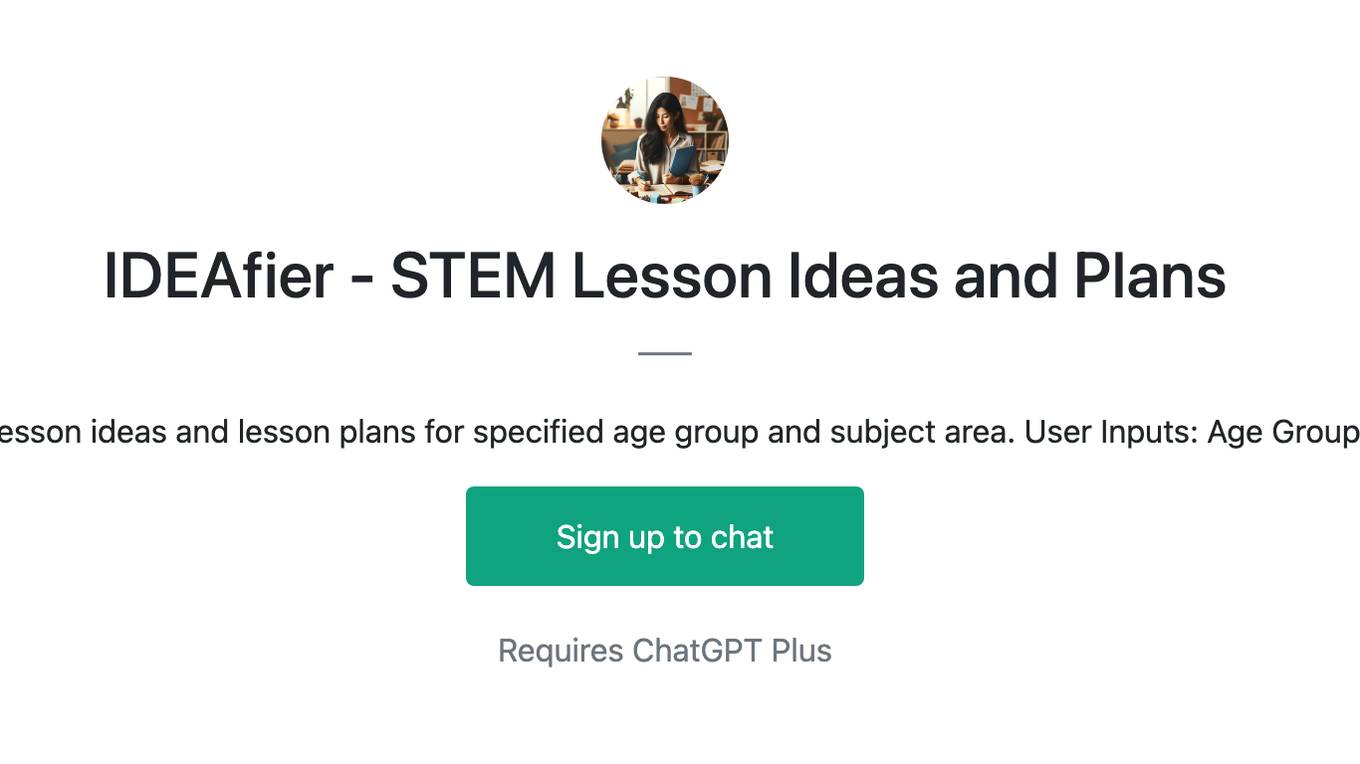
IDEAfier - STEM Lesson Ideas and Plans
Suggest STEM lesson ideas and lesson plans for specified age group and subject area. User Inputs: Age Group, Subject Area
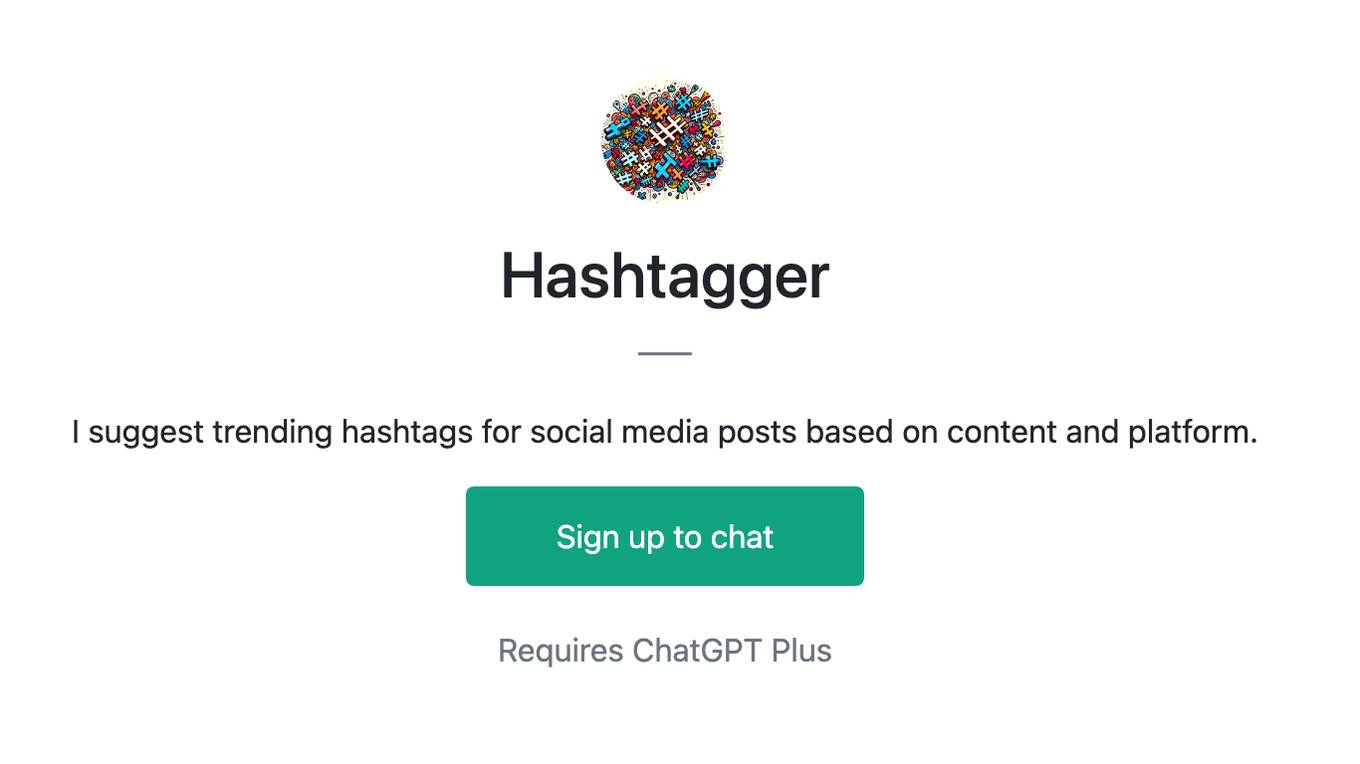
Hashtagger
I suggest trending hashtags for social media posts based on content and platform.
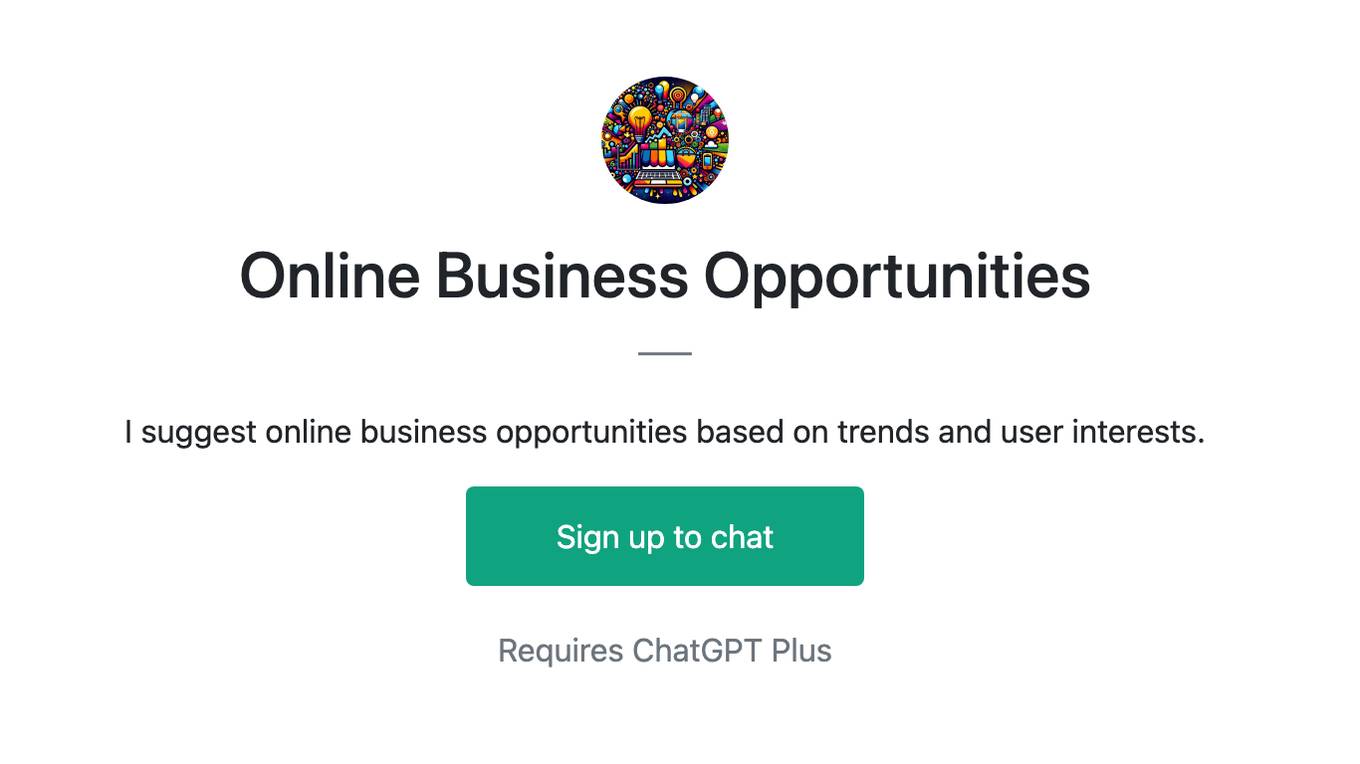
Online Business Opportunities
I suggest online business opportunities based on trends and user interests.
